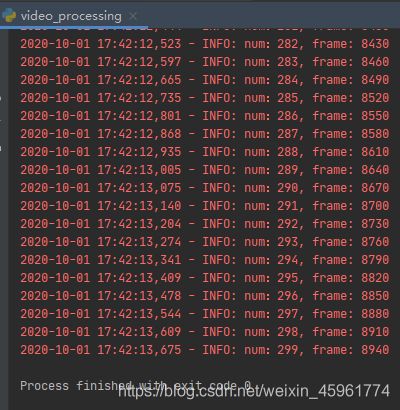- Python中的__slots__
李星星BruceL
问题集python
在Python中,__slots__的用途是什么?以及在哪些情况下应避免使用它?简而言之(TL;DR):特殊属性__slots__允许你明确声明对象实例应该具有的实例属性,并带来以下预期效果:更快的属性访问。节省内存空间。内存节省来自于:将值引用存储在__slots__中,而不是在__dict__中。如果父类禁止创建__dict__和__weakref__,并且你声明了__slots__,则会阻止
- 【datetime】Python datetime模块常用用法
晨风_Chenfeng
python
1.datetime模块中的主要类date:处理日期(年、月、日)。time:处理时间(时、分、秒、微秒)。datetime:处理日期和时间。timedelta:处理时间间隔(两个日期或时间之间的差)。tzinfo:处理时区信息。2.date类date类用于表示日期(年、月、日)。2.1创建date对象fromdatetimeimportdate#使用年、月、日创建date对象d=date(202
- 编程入门难?Python 十大核心知识点,手把手教你!
编程咕咕gu-
Python基础python开发语言Python教程网络爬虫
如果你对编程感兴趣,但又不知道从哪里开始,那么Python会是你的好选择。它简单易学,是初学者学习编程的好帮手。这篇文章会用轻松的方式,带你了解Python的十个重要概念,一步步帮助你从零开始!1.Python文件与扩展名学习Python的第一步是创建一个Python文件。Python文件的名字后面都会加上.py作为扩展名。例如,你可以创建一个名为main.py的文件,这就是一个Python脚本。
- 使用 nodejs 和 ElasticSearch 快速搭建全文检索
dbLenis
数据库java编程语言大数据linux
点击蓝色“有关SQL”关注我哟加个“星标”,天天与10000人一起快乐成长上次群友问我,Python怎么学,我说四个小时足够了,你们不信。这次,我用2个小时,仅仅用Google,快速搭建了一个nodejs+Elasticsearch的小Demo.足可见,在有搜索的年代,快速上手一门技术,已经不是什么难事。1安装1.1下载地址https://nodejs.org/en/download提供windo
- MATLAB基础应用精讲-【数模应用】主成分(pca)分析(附python代码实现)
林聪木
matlab人工智能大数据
目录前言知识储备降维概述算法原理什么是PCAPCA降维过程PCA算法数学步骤选择主成分个数(即k的值)sklearn中参数的解释数学模型协方差协方差矩阵编辑编辑原理推导编辑编辑编辑编辑实际操作主成分分析的计算方法方法1.协方差+特征值分解方法2:奇异值分解对比不同方法计算效率物理意义算法步骤SPSSAU主成分(pca)分析说明1、信息浓缩2、权重计算3、综合得分【综合竞争力】疑难解惑成分得分后用于
- 基于Python的网络漏洞扫描系统的设计与实现
毕设工作室_wlzytw
python论文项目python网络开发语言djangotornadodashpygame
摘要随着互联网不断发展、贴近生活,电子化的生活安全依赖着网络安全。在漏洞泛滥的今天,网络安全状态不容乐观,许多机构都因没有及时处理漏洞导致被恶意入侵,若网络安全保护不当,将会影响现实安全。中小型网络运维人员常因为外部因素影响难以开展网络安全行动。为了应对这一问题,本文研究尝试用Python语言尝试做一个集成漏洞扫描系统的设计与实现。运用以Python为基础的DjangoWeb框架实现快速的业务开发
- 基于 Python 的漏洞扫描工具的设计与实现
计算机毕业设计指导
python开发语言信息安全
引言随着信息技术的快速发展,网络安全问题成为了各类组织和个人面临的重要挑战之一。漏洞是网络安全中的一个重要问题,黑客和恶意攻击者往往通过利用这些漏洞来侵入系统,窃取敏感信息或进行其他恶意行为。因此,及时发现和修复漏洞是确保网络安全的重要手段。本项目旨在设计和实现一个基于Python的漏洞扫描工具,帮助用户快速发现系统中的潜在漏洞,并提供修复建议。该工具将包括对Web应用程序、操作系统、服务等的漏洞
- python代码实现支持神经网络对鸢尾花分类
邀_灼灼其华
机器学习及概率统计python神经网络分类sklearn
1、导入支持向量机模型,划分数据集fromsklearnimportdatasetsfromsklearnimportsvmiris=datasets.load_iris()iris_x=iris.datairis_y=iris.targetindices=np.random.permutation(len(iris_x))iris_x_train=iris_x[indices[:-10]]iri
- RabbitMQ复习
SJLoveIT
rabbitmq分布式
消息中间件的作用:(1)异步处理(2)应用解耦(3)流量削峰消息中间件的缺点:引入了新的东西,也就增加了新的故障点。比如消息中间件挂了,影响系统的可用性。两种框架:JMS和AMQP最大的区别是JMS是是javaapi,对跨平台的支持较差,但在纯java技术栈内首选。AMQP是跨平台的,序列化方式选json,不管你是java,php,C/C++,python,都能处理RabbitMQ实现的事AMQP
- 完整的 Python 数据分析案例:在线游戏玩家付费预测
萧十一郎@
python机器学习人工智能
目录1.案例背景代码实现2.主要的代码难点解析2.1数据清洗-缺失值处理2.2特征工程-新特征计算与独热编码2.3特征选择2.4模型训练与评估2.5数据可视化3.可能改进的代码3.1数据清洗与特征工程改进3.2模型改进3.3可视化改进1.案例背景在在线游戏行业中,准确预测玩家是否会付费以及付费金额,对于游戏运营商制定营销策略、优化游戏设计和提高盈利能力至关重要。本案例将基于玩家的游戏行为数据(如游
- 利用Python实现企业微信发送文件消息
林_胖
python企业微信自动化文件OA
最近领导希望做一个小的招标信息爬取系统,每日以邮件以及企业微信的方式进行推送。所以记录一下如何使用Python实现企业微信发送文件。第一步:登录企业微信后台,需要用有管理员权限的微信进行扫码登录。第二步:获取AgentId和Secret,获取路径:应用管理-创建应用,创建应用后即可看到。第三步:确认需要接收信息的userid,获取路径:通讯录-选择需要发送的人员-账号。第四步:获取公司ID,获取路
- PyCharm极速安装指南:3分钟掌握Python开发环境
三流搬砖艺术家
pythonpythonpycharmide
目录为什么选择PyCharm?️准备工具步骤一:下载安装包⚙️步骤二:安装配置步骤三:首次启动配置步骤四:创建第一个项目效率优化技巧❗常见问题排雷社区版vs专业版为什么选择PyCharm?✅智能代码补全:媲美IDE的语法高亮与提示✅跨平台支持:Windows/macOS/Linux全兼容✅插件生态丰富:支持Web开发、数据分析等场景✅社区版免费:无功能限制,个人开发者首选️准备工具操作系统:Win
- OpenCV Python 版使用教程(三)摄像头读取延迟解决方法
tianchengwang
opencvopencvpython人工智能
文章目录一、上篇回顾二、产生原因三、解决方法1.cap.grab()方法2.多线程法总结一、上篇回顾在上一篇中,简单介绍了如何使用OpenCV操作摄像头,本期来讲在摄像头读取时,可能会出现画面延迟的解决方法。二、产生原因OpenCV在读取的时候,会将视频流放在缓冲区中,然后每次调用的时候,会从缓冲区内读取视频帧。虽然说大多数情况难以出现写入缓冲区远大于读取缓冲区的速度,但是当设备出现性能瓶颈,尤其
- 【Python爬虫(95)】Python爬虫进阶:构建大型垂直领域爬虫系统
奔跑吧邓邓子
Python爬虫python爬虫开发语言垂直领域系统
【Python爬虫】专栏简介:本专栏是Python爬虫领域的集大成之作,共100章节。从Python基础语法、爬虫入门知识讲起,深入探讨反爬虫、多线程、分布式等进阶技术。以大量实例为支撑,覆盖网页、图片、音频等各类数据爬取,还涉及数据处理与分析。无论是新手小白还是进阶开发者,都能从中汲取知识,助力掌握爬虫核心技能,开拓技术视野。目录一、项目需求分析1.1确定垂直领域1.2业务需求分析1.3用户需求
- Python 文本处理神器:textwrap 模块深度解析
tekin
Python编程秘籍库pythonPython文本处理神器textwrap模块深度解析
Python文本处理神器:textwrap模块深度解析在Python编程中,处理文本是一项常见任务,比如自动换行、填充文本、缩短文本等。textwrap模块就像是一个贴心助手,专门用来解决这些问题。本文将带你深入了解textwrap模块的各种功能,通过丰富的示例代码和清晰的讲解,让你轻松掌握它的使用技巧,提升文本处理能力。文章目录Python文本处理神器:textwrap模块深度解析一、`text
- Python NumPy 深度解析:科学计算的得力助手
tekin
Python高阶工坊pythonnumpy科学计算
PythonNumPy深度解析:科学计算的得力助手在Python数据科学和科学计算领域,NumPy是一个核心且基础的库。它提供了强大的多维数组对象以及用于处理这些数组的各种工具,包括高效的数学运算、线性代数操作、随机数生成等功能。本文将全方位详细介绍NumPy,从数组的创建、操作到高级应用,深入探讨索引和切片操作、广播机制等重要特性,还会对NumPy与其他可选计算方式进行比较,帮助读者深入理解并掌
- 【Python爬虫(86)】元宇宙浪潮下,Python爬虫能否乘风破浪?
奔跑吧邓邓子
Python爬虫python爬虫开发语言元宇宙
【Python爬虫】专栏简介:本专栏是Python爬虫领域的集大成之作,共100章节。从Python基础语法、爬虫入门知识讲起,深入探讨反爬虫、多线程、分布式等进阶技术。以大量实例为支撑,覆盖网页、图片、音频等各类数据爬取,还涉及数据处理与分析。无论是新手小白还是进阶开发者,都能从中汲取知识,助力掌握爬虫核心技能,开拓技术视野。目录一、元宇宙:概念与架构的深度剖析1.1元宇宙概念溯源1.2元宇宙架
- 【Python爬虫(94)】爬虫生存指南:风险识别与应对策略
奔跑吧邓邓子
Python爬虫python爬虫开发语言
【Python爬虫】专栏简介:本专栏是Python爬虫领域的集大成之作,共100章节。从Python基础语法、爬虫入门知识讲起,深入探讨反爬虫、多线程、分布式等进阶技术。以大量实例为支撑,覆盖网页、图片、音频等各类数据爬取,还涉及数据处理与分析。无论是新手小白还是进阶开发者,都能从中汲取知识,助力掌握爬虫核心技能,开拓技术视野。目录一、爬虫项目中的风险识别1.1反爬虫导致的爬虫失效1.2数据泄露风
- LeetCode - #219 存在重复元素 II
网罗开发
Swiftvue.jsleetcode算法
网罗开发(小红书、快手、视频号同名) 大家好,我是展菲,目前在上市企业从事人工智能项目研发管理工作,平时热衷于分享各种编程领域的软硬技能知识以及前沿技术,包括iOS、前端、HarmonyOS、Java、Python等方向。在移动端开发、鸿蒙开发、物联网、嵌入式、云原生、开源等领域有深厚造诣。图书作者:《ESP32-C3物联网工程开发实战》图书作者:《SwiftUI入门,进阶与实战》超级个体:CO
- 深度学习-138-LangGraph之应用实例(七)构建自动绘图系统
皮皮冰燃
深度学习深度学习人工智能LangGraph
文章目录1初始化核心功能1.1大语言模型1.2结构化输出1.3搜索引擎1.4Python执行环境2编排流2.1创建图2.2可视化图2.3应用图3绘图指定线型4添加工具增强4.1执行工具和打印工具4.2绑定工具4.3编排流4.4可视化图4.5应用1初始化核心功能1.1大语言模型importosos.environ['OLLAMA_HOST']='127.0.0.1'os.environ['OLLAM
- 穿越AI边界:深度集成DeepSeek API与云平台的实践之路
云边有个稻草人
热门文章人工智能DeepSeek大数据集成DeepSeekAPIDeepSeek算法阿里云百炼平台集成
云边有个稻草人-CSDN博客随着人工智能技术的日益发展,深度学习和自然语言处理(NLP)已经在很多领域得到了广泛的应用。DeepSeek作为一款领先的大型语言生成模型,凭借其强大的推理和生成能力,已经被越来越多的开发者和行业专家所青睐。通过DeepSeek提供的API接口,开发者可以在多个领域中实现先进的自然语言理解和生成任务。本文将深入探讨如何使用Python调用DeepSeek的API接口,并
- AI在农业中的应用:精准农业的新时代
AI大模型应用之禅
DeepSeekR1&AI大模型与大数据计算科学神经计算深度学习神经网络大数据人工智能大型语言模型AIAGILLMJavaPython架构设计AgentRPA
AI,农业,精准农业,机器学习,深度学习,计算机视觉,农业机器人1.背景介绍农业是人类文明的基石,也是全球经济的重要支柱。然而,随着人口增长和资源短缺,传统农业面临着诸多挑战,例如低效率、资源浪费、环境污染和气候变化的影响。为了应对这些挑战,精准农业应运而生。精准农业是指利用现代信息技术和数据分析手段,对农业生产进行精细化管理,提高资源利用效率、产量和产品质量,同时减少环境污染。人工智能(AI)作
- AI 驱动的智慧大脑:打造企业动态知识库,开启高效管理新时代
网罗开发
人工智能AI大模型深度学习人工智能
网罗开发(小红书、快手、视频号同名) 大家好,我是展菲,目前在上市企业从事人工智能项目研发管理工作,平时热衷于分享各种编程领域的软硬技能知识以及前沿技术,包括iOS、前端、HarmonyOS、Java、Python等方向。在移动端开发、鸿蒙开发、物联网、嵌入式、云原生、开源等领域有深厚造诣。图书作者:《ESP32-C3物联网工程开发实战》图书作者:《SwiftUI入门,进阶与实战》超级个体:CO
- 《python从入门到实践》笔记 第3章 列表简介
镜中人★
python编程从入门到实践python前端javascript
3.1列表是什么列表:由一系列按特定顺序排列的元素组成。创建包含字母表所有字母、数字0-9或所有家庭成员姓名的列表;也可以将任何东西加入列表中,其中的元素之间可以没有任何关系。用方括号([])来表示列表,并用逗号分割其中的元素。bicycles.pybicycles=['trek','cannondale','redline','specialized']print(bicycles)3.1.1访
- Python中使用httpx模块详解
skydust1979
python
导入httpxIn [25]: import httpx获取一个网页In [26]: r = httpx.get("https://httpbin.org/get")In [27]: rOut[27]: 同样,发送HTTPPOST请求:In [28]: r = httpx.post("https://httpbin.org/post", data={"key": "value"})In [29]:
- 从零到精通:小白DeepSeek全栈入门指南
好东西不迷路
各自资源AI前端htmlpython
第一部分:认知准备(1-3天)1.1基础概念搭建人工智能三要素:数据/算法/算力深度学习与传统机器学习的区别神经网络基本结构(输入层/隐藏层/输出层)常用术语解析:epoch、batch、loss、accuracy1.2环境配置实战Python环境搭建(推荐Anaconda)condacreate-ndeepseekpython=3.8condaactivatedeepseek深度学习框架选择指南
- paddlepaddle(飞浆)报错name ‘libpaddle‘ is not defined及paddle.fluid.core_noavx
管春
数据分析paddlepaddlepaddle人工智能
最近有一个OCR中文识别的需求,用到paddleocr,但服务器死活装不上paddlepaddle(python3.10.4,win8环境)先装了2.6.0的paddele,报name‘libpaddle’isnotdefined,然后降版本(2.4的某个版本,忘了),paddle.fluid.core_noavximport失败,发现服务器没有avx,这个版本不支持noavx的,去paddlep
- 【llm对话系统】 LLM 大模型推理python实现:vLLM 框架
kakaZhui
人工智能AIGCchatgptpythonllama
在LLM的应用中,推理(Inference)阶段至关重要。它指的是利用训练好的LLM模型,根据输入(Prompt)生成文本的过程。然而,LLM的推理速度往往较慢,尤其是在处理长序列或高并发请求时,效率瓶颈尤为突出。为了解决这个问题,vLLM应运而生!vLLM是一个专为LLM设计的高吞吐、低延迟的推理和服务引擎,它能够显著提升LLM的推理速度,让你的应用如虎添翼!今天,我们就来一起探索vLLM的奥秘
- Python小实验——归结反演
我没得冰阔落.
人工智能python人工智能
实验目的打印所有互补文字;头现命题逻辑简单归结;实验内容及结果#归结反演过程,传入外面最大的数组里面的两个小数组,也就是两个子句,消掉对应的谓词公式defresult(m=[],n=[]):after=0whilelen(m)!=after:after=len(m)foriinm:forjinn:if(
- Python vLLM 实战应用指南
ghostwritten
pythonpython开发语言
文章目录1.vLLM简介2.安装vLLM3.快速开始3.1加载模型并生成文本3.2参数说明4.实战应用场景4.1构建聊天机器人示例对话:4.2文本补全输出示例:4.3自定义模型服务启动服务调用服务5.性能优化5.1GPU加速5.2动态批处理6.总结vLLM是一种高性能的开源深度学习推理引擎,专注于高效的生成式模型推理任务。它通过动态批处理和内存优化技术大幅提高了大模型(如GPT系列)的推理性能,非
- ViewController添加button按钮解析。(翻译)
张亚雄
c
<div class="it610-blog-content-contain" style="font-size: 14px"></div>// ViewController.m
// Reservation software
//
// Created by 张亚雄 on 15/6/2.
- mongoDB 简单的增删改查
开窍的石头
mongodb
在上一篇文章中我们已经讲了mongodb怎么安装和数据库/表的创建。在这里我们讲mongoDB的数据库操作
在mongo中对于不存在的表当你用db.表名 他会自动统计
下边用到的user是表明,db代表的是数据库
添加(insert):
- log4j配置
0624chenhong
log4j
1) 新建java项目
2) 导入jar包,项目右击,properties—java build path—libraries—Add External jar,加入log4j.jar包。
3) 新建一个类com.hand.Log4jTest
package com.hand;
import org.apache.log4j.Logger;
public class
- 多点触摸(图片缩放为例)
不懂事的小屁孩
多点触摸
多点触摸的事件跟单点是大同小异的,上个图片缩放的代码,供大家参考一下
import android.app.Activity;
import android.os.Bundle;
import android.view.MotionEvent;
import android.view.View;
import android.view.View.OnTouchListener
- 有关浏览器窗口宽度高度几个值的解析
换个号韩国红果果
JavaScripthtml
1 元素的 offsetWidth 包括border padding content 整体的宽度。
clientWidth 只包括内容区 padding 不包括border。
clientLeft = offsetWidth -clientWidth 即这个元素border的值
offsetLeft 若无已定位的包裹元素
- 数据库产品巡礼:IBM DB2概览
蓝儿唯美
db2
IBM DB2是一个支持了NoSQL功能的关系数据库管理系统,其包含了对XML,图像存储和Java脚本对象表示(JSON)的支持。DB2可被各种类型的企 业使用,它提供了一个数据平台,同时支持事务和分析操作,通过提供持续的数据流来保持事务工作流和分析操作的高效性。 DB2支持的操作系统
DB2可应用于以下三个主要的平台:
工作站,DB2可在Linus、Unix、Windo
- java笔记5
a-john
java
控制执行流程:
1,true和false
利用条件表达式的真或假来决定执行路径。例:(a==b)。它利用条件操作符“==”来判断a值是否等于b值,返回true或false。java不允许我们将一个数字作为布尔值使用,虽然这在C和C++里是允许的。如果想在布尔测试中使用一个非布尔值,那么首先必须用一个条件表达式将其转化成布尔值,例如if(a!=0)。
2,if-els
- Web开发常用手册汇总
aijuans
PHP
一门技术,如果没有好的参考手册指导,很难普及大众。这其实就是为什么很多技术,非常好,却得不到普遍运用的原因。
正如我们学习一门技术,过程大概是这个样子:
①我们日常工作中,遇到了问题,困难。寻找解决方案,即寻找新的技术;
②为什么要学习这门技术?这门技术是不是很好的解决了我们遇到的难题,困惑。这个问题,非常重要,我们不是为了学习技术而学习技术,而是为了更好的处理我们遇到的问题,才需要学习新的
- 今天帮助人解决的一个sql问题
asialee
sql
今天有个人问了一个问题,如下:
type AD value
A
- 意图对象传递数据
百合不是茶
android意图IntentBundle对象数据的传递
学习意图将数据传递给目标活动; 初学者需要好好研究的
1,将下面的代码添加到main.xml中
<?xml version="1.0" encoding="utf-8"?>
<LinearLayout xmlns:android="http:/
- oracle查询锁表解锁语句
bijian1013
oracleobjectsessionkill
一.查询锁定的表
如下语句,都可以查询锁定的表
语句一:
select a.sid,
a.serial#,
p.spid,
c.object_name,
b.session_id,
b.oracle_username,
b.os_user_name
from v$process p, v$s
- mac osx 10.10 下安装 mysql 5.6 二进制文件[tar.gz]
征客丶
mysqlosx
场景:在 mac osx 10.10 下安装 mysql 5.6 的二进制文件。
环境:mac osx 10.10、mysql 5.6 的二进制文件
步骤:[所有目录请从根“/”目录开始取,以免层级弄错导致找不到目录]
1、下载 mysql 5.6 的二进制文件,下载目录下面称之为 mysql5.6SourceDir;
下载地址:http://dev.mysql.com/downl
- 分布式系统与框架
bit1129
分布式
RPC框架 Dubbo
什么是Dubbo
Dubbo是一个分布式服务框架,致力于提供高性能和透明化的RPC远程服务调用方案,以及SOA服务治理方案。其核心部分包含: 远程通讯: 提供对多种基于长连接的NIO框架抽象封装,包括多种线程模型,序列化,以及“请求-响应”模式的信息交换方式。 集群容错: 提供基于接
- 那些令人蛋痛的专业术语
白糖_
springWebSSOIOC
spring
【控制反转(IOC)/依赖注入(DI)】:
由容器控制程序之间的关系,而非传统实现中,由程序代码直接操控。这也就是所谓“控制反转”的概念所在:控制权由应用代码中转到了外部容器,控制权的转移,是所谓反转。
简单的说:对象的创建又容器(比如spring容器)来执行,程序里不直接new对象。
Web
【单点登录(SSO)】:SSO的定义是在多个应用系统中,用户
- 《给大忙人看的java8》摘抄
braveCS
java8
函数式接口:只包含一个抽象方法的接口
lambda表达式:是一段可以传递的代码
你最好将一个lambda表达式想象成一个函数,而不是一个对象,并记住它可以被转换为一个函数式接口。
事实上,函数式接口的转换是你在Java中使用lambda表达式能做的唯一一件事。
方法引用:又是要传递给其他代码的操作已经有实现的方法了,这时可以使
- 编程之美-计算字符串的相似度
bylijinnan
java算法编程之美
public class StringDistance {
/**
* 编程之美 计算字符串的相似度
* 我们定义一套操作方法来把两个不相同的字符串变得相同,具体的操作方法为:
* 1.修改一个字符(如把“a”替换为“b”);
* 2.增加一个字符(如把“abdd”变为“aebdd”);
* 3.删除一个字符(如把“travelling”变为“trav
- 上传、下载压缩图片
chengxuyuancsdn
下载
/**
*
* @param uploadImage --本地路径(tomacat路径)
* @param serverDir --服务器路径
* @param imageType --文件或图片类型
* 此方法可以上传文件或图片.txt,.jpg,.gif等
*/
public void upload(String uploadImage,Str
- bellman-ford(贝尔曼-福特)算法
comsci
算法F#
Bellman-Ford算法(根据发明者 Richard Bellman 和 Lester Ford 命名)是求解单源最短路径问题的一种算法。单源点的最短路径问题是指:给定一个加权有向图G和源点s,对于图G中的任意一点v,求从s到v的最短路径。有时候这种算法也被称为 Moore-Bellman-Ford 算法,因为 Edward F. Moore zu 也为这个算法的发展做出了贡献。
与迪科
- oracle ASM中ASM_POWER_LIMIT参数
daizj
ASMoracleASM_POWER_LIMIT磁盘平衡
ASM_POWER_LIMIT
该初始化参数用于指定ASM例程平衡磁盘所用的最大权值,其数值范围为0~11,默认值为1。该初始化参数是动态参数,可以使用ALTER SESSION或ALTER SYSTEM命令进行修改。示例如下:
SQL>ALTER SESSION SET Asm_power_limit=2;
- 高级排序:快速排序
dieslrae
快速排序
public void quickSort(int[] array){
this.quickSort(array, 0, array.length - 1);
}
public void quickSort(int[] array,int left,int right){
if(right - left <= 0
- C语言学习六指针_何谓变量的地址 一个指针变量到底占几个字节
dcj3sjt126com
C语言
# include <stdio.h>
int main(void)
{
/*
1、一个变量的地址只用第一个字节表示
2、虽然他只使用了第一个字节表示,但是他本身指针变量类型就可以确定出他指向的指针变量占几个字节了
3、他都只存了第一个字节地址,为什么只需要存一个字节的地址,却占了4个字节,虽然只有一个字节,
但是这些字节比较多,所以编号就比较大,
- phpize使用方法
dcj3sjt126com
PHP
phpize是用来扩展php扩展模块的,通过phpize可以建立php的外挂模块,下面介绍一个它的使用方法,需要的朋友可以参考下
安装(fastcgi模式)的时候,常常有这样一句命令:
代码如下:
/usr/local/webserver/php/bin/phpize
一、phpize是干嘛的?
phpize是什么?
phpize是用来扩展php扩展模块的,通过phpi
- Java虚拟机学习 - 对象引用强度
shuizhaosi888
JAVA虚拟机
本文原文链接:http://blog.csdn.net/java2000_wl/article/details/8090276 转载请注明出处!
无论是通过计数算法判断对象的引用数量,还是通过根搜索算法判断对象引用链是否可达,判定对象是否存活都与“引用”相关。
引用主要分为 :强引用(Strong Reference)、软引用(Soft Reference)、弱引用(Wea
- .NET Framework 3.5 Service Pack 1(完整软件包)下载地址
happyqing
.net下载framework
Microsoft .NET Framework 3.5 Service Pack 1(完整软件包)
http://www.microsoft.com/zh-cn/download/details.aspx?id=25150
Microsoft .NET Framework 3.5 Service Pack 1 是一个累积更新,包含很多基于 .NET Framewo
- JAVA定时器的使用
jingjing0907
javatimer线程定时器
1、在应用开发中,经常需要一些周期性的操作,比如每5分钟执行某一操作等。
对于这样的操作最方便、高效的实现方式就是使用java.util.Timer工具类。
privatejava.util.Timer timer;
timer = newTimer(true);
timer.schedule(
newjava.util.TimerTask() { public void run()
- Webbench
流浪鱼
webbench
首页下载地址 http://home.tiscali.cz/~cz210552/webbench.html
Webbench是知名的网站压力测试工具,它是由Lionbridge公司(http://www.lionbridge.com)开发。
Webbench能测试处在相同硬件上,不同服务的性能以及不同硬件上同一个服务的运行状况。webbench的标准测试可以向我们展示服务器的两项内容:每秒钟相
- 第11章 动画效果(中)
onestopweb
动画
index.html
<!DOCTYPE html PUBLIC "-//W3C//DTD XHTML 1.0 Transitional//EN" "http://www.w3.org/TR/xhtml1/DTD/xhtml1-transitional.dtd">
<html xmlns="http://www.w3.org/
- windows下制作bat启动脚本.
sanyecao2314
javacmd脚本bat
java -classpath C:\dwjj\commons-dbcp.jar;C:\dwjj\commons-pool.jar;C:\dwjj\log4j-1.2.16.jar;C:\dwjj\poi-3.9-20121203.jar;C:\dwjj\sqljdbc4.jar;C:\dwjj\voucherimp.jar com.citsamex.core.startup.MainStart
- Java进行RSA加解密的例子
tomcat_oracle
java
加密是保证数据安全的手段之一。加密是将纯文本数据转换为难以理解的密文;解密是将密文转换回纯文本。 数据的加解密属于密码学的范畴。通常,加密和解密都需要使用一些秘密信息,这些秘密信息叫做密钥,将纯文本转为密文或者转回的时候都要用到这些密钥。 对称加密指的是发送者和接收者共用同一个密钥的加解密方法。 非对称加密(又称公钥加密)指的是需要一个私有密钥一个公开密钥,两个不同的密钥的
- Android_ViewStub
阿尔萨斯
ViewStub
public final class ViewStub extends View
java.lang.Object
android.view.View
android.view.ViewStub
类摘要: ViewStub 是一个隐藏的,不占用内存空间的视图对象,它可以在运行时延迟加载布局资源文件。当 ViewSt
